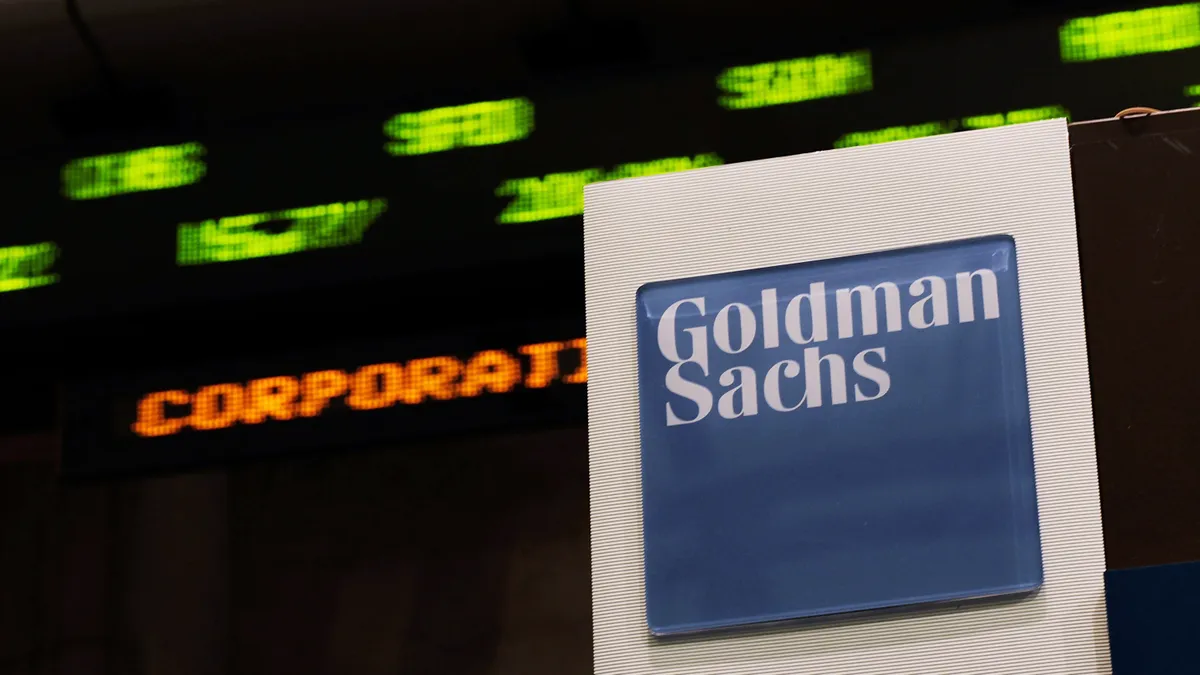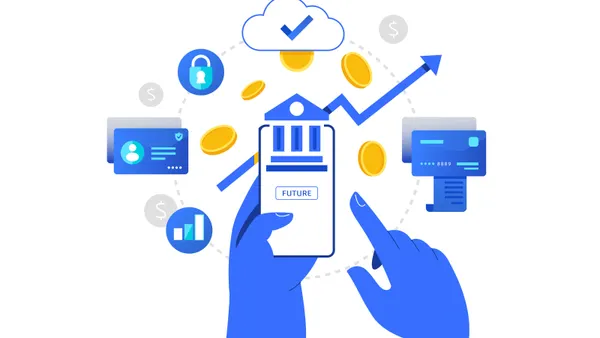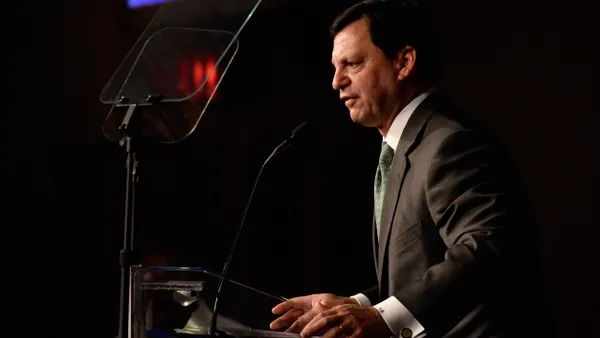“There’s pain in every relationship, Michael. I’d just like to have my pain now,” Teri Garr’s character, Sandy, tells Dustin Hoffman’s Michael Dorsey in the movie “Tootsie.”
That may be one window into the logic behind what, in finance, could be coined the “August surprise.”
In political terms, opponents may strive to uncover an October surprise to derail a candidate’s chances of election in November. By contrast, banks seem to be disclosing to their investors particularly impactful information early in a fiscal quarter so that it won’t be a surprise at earnings time. In short, they’re getting ahead of the narrative with an August surprise to avoid a more painful one in September.
In that vein, a number of banks — just days after reporting earnings for the second quarter — are preparing their shareholders for potentially undesirable news set to drop in the third.
Goldman Sachs, for example, disclosed Thursday that the Consumer Financial Protection Bureau (CFPB) is investigating the bank over its credit card account management practices, including how it resolves billing errors and processes refunds.
The bank said it is cooperating with the probe, which is also scrutinizing Goldman’s advertisements, how it credits “nonconforming payments,” and how it reports information to credit bureaus, according to Thursday’s filing with the Securities and Exchange Commission (SEC).
Goldman is relatively new to the credit-card sphere. It rolled out its inaugural offering, the Apple Card, in 2019, and in January, launched a credit card in partnership with General Motors.
This wouldn’t be the first time a regulator has looked under the hood at the Apple Card. New York’s Department of Financial Services (NYDFS) launched an investigation in 2019 into claims that Goldman Sachs’ credit decisions showed a bias against women. NYDFS found any discrimination was not intentional.
Goldman’s nascent credit-card business falls under its consumer bank, Marcus, a brand that has been enough of a bright spot that Goldman stretched its goals for it at a recent strategic update.
Goldman in 2020 said it wanted Marcus’ deposit balances to reach $125 billion by 2025. It surpassed $100 billion by September 2021, so Goldman in February adjusted the target to $150 billion by 2024. Likewise, Goldman upped its target for consumer loans and card balances to $30 billion by 2024, from a previous goal of $20 billion by 2025. Marcus counted $11.8 billion in credit card balances at the end of June — up from roughly $5 billion a year earlier, Goldman said in its second-quarter earnings report.
Still, the CFPB probe could give the unit an outsized legal burden, for its share of Goldman’s revenue. Marcus generated 2% of Goldman’s $59 billion in net revenue last year, according to the Financial Times. And Bloomberg reported in June that the consumer-banking unit could lose more than $1.2 billion this year.
Nonetheless, Marcus’ revenue jumped 67% year over year in the second quarter, to $608 million.
Goldman isn’t alone in giving its shareholders time to let less-than-stellar results settle.
Citi revealed Thursday its exposure to Russia rose by $500 million during the second quarter — to $8.4 billion — because of a 40% surge in the ruble compared to the dollar. Within a week of Russia’s invasion of Ukraine, Citi warned investors it had $9.8 billion in exposure to Russia at the end of 2021. That figure dropped to $7.9 billion by March — though Citi’s CFO, Mark Mason, indicated Citi’s losses, even under a “severe stress scenario,” would top out around $4 billion.
Additionally, Citi disclosed Thursday that “government and regulatory agencies are conducting investigations or making inquiries” into the bank’s sales and trading activities connected to “sovereign and other government-related securities.”
Meanwhile, Jefferies told investors Monday in a filing that it, like several banks, was preparing to be hit with a penalty stemming from U.S. regulators’ probe of “record-keeping requirements in connection with personal-texting devices used for business communications.”
Morgan Stanley and Bank of America made similar warnings last month, in confluence with their second-quarter earnings, with each setting aside roughly $200 million. Jefferies, by comparison, estimated its penalty at a combined $80 million to be paid to the Commodity Futures Trading Commission (CFTC) and SEC.














